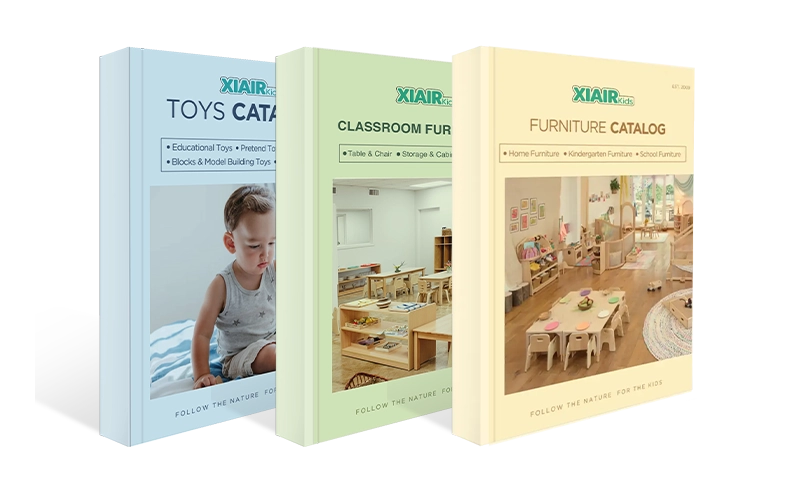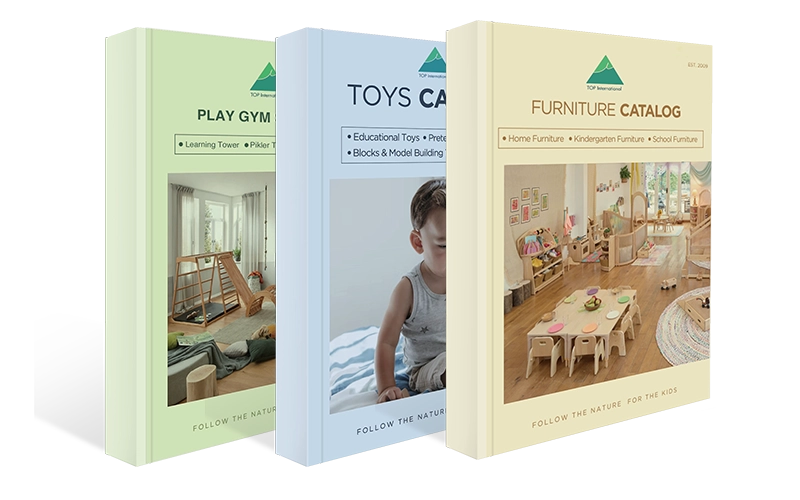Have you ever wondered how you can elevate your career in early childhood education? Are you looking for a way to enhance your skills, improve your job prospects, and make a real impact on young learners? Do you want a certification that’s recognized nationwide and opens doors to higher-paying, more rewarding positions? If these questions sound familiar, then pursuing a CDA certification could be the next step in your professional journey.
The Child Development Associate (CDA) certification is a respected credential that enables early childhood educators to demonstrate their competence in delivering high-quality care and education to young children. This certification is designed to enhance your practical skills and knowledge in child development, making it an essential qualification for anyone working with children aged 0 to 5.
In this article, we will guide you through the entire process of obtaining your CDA certification, covering the requirements, the benefits, and how it can advance your career in the early childhood education field. Whether you’re just starting or looking to advance your current career, this comprehensive guide provides the information you need to succeed.

What is a CDA Certificate?
The CDA Certificate is a professional credential awarded to individuals who work in early childhood education and demonstrate their competence in working with children from birth to age 5. The certification is issued by the Council for Professional Recognition, a non-profit organization that has set national standards for early childhood education.
This certificate is highly recognized in the industry as it signifies a teacher’s knowledge of child development and ability to provide nurturing, safe, and educational environments for young children. The CDA certification is valid for three years, after which you can renew it by completing additional professional development courses and demonstrating continued competence in the field.
The CDA Certification is available in various settings depending on the age group you work with, and it’s designed to ensure that early childhood educators have the required knowledge, skills, and experience to be effective in their roles. Whether you work in a daycare center, preschool, or family child care setting, the CDA helps standardize the quality of early childhood education across the nation.
How Do I Get a CDA Certificate?
Obtaining a CDA Certificate requires meeting several requirements that the Council for Professional Recognition sets forth. Below is a step-by-step guide outlining how to get your CDA certification and begin your career in early childhood education.

Age Requirement and High School Diploma
To apply for the CDA certification, you must be at least 18 and possess a high school diploma or equivalent. This ensures that you have the foundational education required to comprehend the theoretical aspects of early childhood education. The CDA certification ensures you have the academic knowledge and practical experience to effectively care for and teach young children.
Select Your Preferred Early Childhood Setting
There are four types of CDA-accredited early childhood settings: infant-toddler settings, home visitor settings, family childcare settings, and preschool settings. The CDA certification requires you to choose a career path among these settings.
- Infant/Toddler CDA (for children ages 0-3)
- Preschool CDA (for children ages 3-5)
- Family Child Care CDA (for educators working in home-based care settings)
- Home Visitor CDA (for those who visit homes and work with families to support children’s learning and development)
Each of these settings has specific requirements that cater to the unique developmental needs of the children in that age group. Selecting the correct CDA credential setting is crucial, as it directly influences the specific competencies you’ll need to demonstrate and the type of work environment you’ll be prepared for.
Professional Education
A critical requirement for earning your CDA certificate is completing 120 hours of professional education in early childhood development. This education must be obtained through an accredited institution, and the courses should cover various essential topics, such as:
- Children’s intellectual development: CDA certification strongly emphasizes that children’s intellectual and physical development has to be nurtured.
- Learners’ emotional development: This is where you focus on cultivating and supporting children’s emotional and social development.
- Childcare program management: You’re trained to successfully and effectively operate and manage childcare programs.
- Principles of education and development: This training area emphasizes all basic principles of a child’s education and development.
- Nurturing family relationships: As a CDA-certified professional, you must effectively nurture family relationships to positively impact children’s development in the classroom and at home.
- Learners’ behavior: You’ll be trained to observe, record, and analyze learners’ behavior to understand their development better.
- The learning environment: You’ll be trained on how to create a safe and positive learning environment for the children.
- Your professionalism: Your commitment to professional ethics and conduct is essential for obtaining certification from the CDA.
You must spend at least 10 hours on each of these subject areas.
Completing the required education hours is vital in preparing you for the practical application of early childhood teaching methods. This education helps you gain foundational knowledge and equips you with tools and strategies to implement in the classroom.

Work Experience
In addition to completing the necessary education, candidates for the CDA certification must also gain 480 hours of hands-on experience working with children. This experience must be in the age group corresponding to your chosen credential setting.
For example, if you are pursuing the Preschool CDA, you’ll need at least 480 hours of experience working with children ages 3-5. The work experience requirement ensures you have practical knowledge in implementing what you’ve learned during your professional education.
You can gain this experience by working at a licensed childcare facility, such as a daycare center or preschool. If you’re already employed in such a setting, you may be able to use your current job to fulfill this requirement. For your work hours to count toward certification, you must complete the experience requirement within three years after taking the exam.
Professional Portfolio for the CDA Certificate
As part of the application process for the CDA Certification, you are required to create a professional portfolio. This portfolio is a collection of documents that showcase your work, reflecting on your experiences and skills gained during your education and work experience.
Your professional portfolio must include:
- Proof of your educational background, including CDA-approved training experiences and university transcripts.
- A CDA education background summary, as well as additional documentation of the 120-hour training you’ve completed.
- A family questionnaire, which includes questions and answers provided by families of children you have worked with. The questionnaire must consist of responses from more than 50% of the families.
- A list of child learning resources, along with a two-page statement of your professional values and beliefs in early childhood education. This statement should outline your role as an educator.
- Six reflective written competency statements (around 300-500 words each). These statements will outline your teaching practices and must be accompanied by supporting documentation from the CDA competency standards.
This portfolio is essential to the CDA certification process because it provides tangible evidence of your ability to apply your knowledge in real-life situations. It’s also a great way to reflect on your professional growth and development.
Verification Visit
A verification visit is a required step in the CDA certification process. During this visit, an observer from the Council for Professional Recognition will visit your workplace to observe your interactions with children and assess your skills. This is a crucial step to verify that you meet the standards for CDA certification and demonstrate competence in applying early childhood education principles.

The observer will assess how well you manage the classroom, engage with children, and implement activities. This visit helps ensure that you’re knowledgeable and capable of creating a positive and educational environment for children.
CDA Certification Exam
After completing the necessary education, work experience, and professional portfolio, you must take the CDA certification exam. The exam consists of multiple-choice questions that cover various topics related to child development, early childhood education, and best practices in the field.
The CDA exam assesses your theoretical knowledge and ability to apply it in a classroom or care setting. It is a crucial step in confirming your readiness for the responsibilities of an early childhood educator. Passing this exam is a key milestone in earning your CDA certification.
Credentialing Decision for the CDA Certificate
Once you’ve completed all the necessary steps—education, work experience, professional portfolio, verification visit, and exam—the final stage of earning your CDA certification is the credentialing decision. After submitting all your documentation and completing the assessment process, the Council for Professional Recognition will evaluate your application.
Based on their review, they will decide whether you have met the required standards for the CDA certification. If you are successful, you will be awarded the CDA certificate. This certification will serve as proof of your competence in early childhood education and is valid for three years.
How Much Does It Cost to Apply for a CDA Certificate?
The cost to apply for the CDA certification typically ranges between $425 to $450, depending on the specific credentialing setting you are pursuing (e.g., Infant/Toddler, Preschool, Family Child Care). This fee covers a variety of aspects in the certification process, including:
- The application fee
- The cost of the CDA certification exam
- The verification visit by a council representative
- Processing your documentation and portfolio
While the upfront cost may seem significant, the long-term value of the CDA certificate is substantial. Not only does it increase your career opportunities and earning potential, but it also provides recognition as a qualified professional in early childhood education.
It’s also important to note that some states or employers may offer funding, grants, or financial assistance to help cover the cost of the CDA certification. Explore potential financial support options, such as scholarships or employer reimbursement programs, which may reduce the financial burden.
CDA Training Providers
Many accredited providers offer the training you need to meet the educational requirements for your CDA certification. Whether you prefer online courses or in-person classes, there are numerous options available to suit your learning style and schedule. Below are a few well-known training providers for CDA certification:
Care Courses
Care Courses is a trusted provider of online courses for early childhood education professionals. They offer affordable training to meet the CDA certification education requirements. Their online courses allow you to study at your own pace, which is ideal for busy professionals looking to balance work and education.
Care Courses is well-regarded for its user-friendly platform and comprehensive course offerings, ensuring that you get the knowledge you need to excel in the CDA certification process.
CypherWorx
CypherWorx provides high-quality, accredited online courses for early childhood educators. Their classes are designed to meet the requirements for CDA certification and are available in various formats to accommodate different learning styles and preferences. With CypherWorx, you can complete your education requirements in a flexible, self-paced environment.
ChildCareEd
ChildCareEd offers a range of online courses specifically designed for individuals pursuing the Child Development Associate (CDA) certification. They provide an engaging and interactive learning experience, with classes that cover essential topics such as child development, curriculum planning, and family engagement.
Their certification programs are accredited, and they are a well-known provider for those seeking to meet their educational requirements for the CDA certification.
ProSolutions Training
ProSolutions Training is another leading provider of online courses for early childhood education professionals. They offer classes that are approved by the Council for Professional Recognition and are designed to help you meet the educational criteria for the CDA certification.
ProSolutions Training is known for its high-quality content and ease of access, allowing you to complete your professional development hours efficiently.
Benefits of the CDA Certificate
The CDA Certification offers numerous benefits that make it a worthwhile investment in your career. From career advancement opportunities to personal professional growth, obtaining your CDA certificate provides value not just for you but also for the children you serve. Here are the key benefits of earning a CDA Certification:
Improved Career Opportunities
One of the primary reasons many early childhood educators pursue the CDA certification is to enhance their career opportunities. Many employers, including daycare centers, preschools, and family child care providers, require or strongly prefer candidates with CDA certification for lead educator positions.
By earning your CDA certificate, you improve your chances of securing a more stable and fulfilling job in the field of early childhood education. The CDA certification provides recognition of your skills and competencies, making you more competitive in the job market.
Increased Earning Potential
Having a CDA certification can also lead to an increase in earning potential. Many employers offer higher pay to employees with the CDA certification because it demonstrates a higher level of training and expertise. The CDA is a mark of professionalism that can justify higher wages and more job benefits.
Enhanced Professional Skills
The process of obtaining your CDA certificate equips you with essential skills in child development, curriculum planning, and effective communication. By completing the required training, developing your portfolio, and gaining hands-on experience, you enhance your ability to create a positive learning environment for children and foster strong relationships with their families.

Additionally, the knowledge gained through the CDA certification process can help you refine your teaching techniques, making you a more effective educator and improving your overall professional skills.
Better Family and Child Interaction
With a CDA certification, you’ll gain the tools and strategies needed to foster positive interactions with both children and their families. Early childhood education is not just about teaching; it’s also about building relationships with families and understanding the unique needs of each child.
The CDA certification emphasizes the importance of family involvement and child-centered teaching approaches, which can help you better support the children in your care and strengthen relationships with their families.
Professional Recognition and Career Pride
The CDA certification is a prestigious credential that enhances your professional reputation in the early childhood education field. It’s a mark of excellence that demonstrates your dedication to providing high-quality care and education. Holding a CDA certificate can also give you a sense of pride in your career and accomplishments, knowing that you are recognized as a qualified professional in your field.
Continuing Education and Career Growth
The CDA certification also provides a foundation for continued professional growth. Once you earn your CDA certificate, you may choose to pursue additional certifications, degrees, or specialized training in early childhood education. The CDA serves as a stepping stone for further education and career advancement, allowing you to continue growing in your field and taking on new challenges.

Receive a free catalog and custom layout to help you design your ideal classroom easily.
FAQ
1. Who is PearsonVUE?
PearsonVUE is a global leader in computer-based testing and certification exam services. They collaborate with the Council for Professional Recognition to administer the CDA certification exam, ensuring a secure, reliable, and standardized testing process for candidates pursuing their CDA certification.
2. How do I find a PD Specialist?
A Professional Development (PD) Specialist can be found through local early childhood education networks, online directories, or through your training provider. Accredited organizations often provide resources to help you locate a PD specialist, guiding you through the CDA certification process and ensuring you meet all necessary educational requirements.
3. How Long Will It Take for the Council to Make a Credentialing Decision?
After submitting all required documentation for your CDA certification, the Council for Professional Recognition typically takes 4-6 weeks to process your application and make a credentialing decision. Delays may occur if additional information is needed or if there are issues with the documentation provided.
4. What Happens if I Fail the CDA Exam?
If you fail the CDA certification exam, you can retake it. The Council for Professional Recognition allows you to reapply and schedule a retake after paying the exam fee. Focus on the feedback from your first attempt to improve on areas of weakness before attempting the exam again.
5. Is a CDA the Same as an Associate’s Degree?
No, a CDA certification is not the same as an associate’s degree. The CDA certification focuses on practical skills specific to early childhood education, whereas an associate’s degree involves a more comprehensive academic curriculum. The CDA certification is designed for immediate application in child care roles, while an associate’s degree requires more time and offers broader academic knowledge.
6. Is a CDA Certification Worth College Credit Hours?
Yes, in some instances, the CDA certification can be applied toward college credit hours. Many colleges and universities recognize the CDA as a foundational credential for further study in early childhood education and may offer credit for coursework completed as part of the CDA certification.
Conclusion
Achieving your CDA certification is a significant step in advancing your career in early childhood education. By meeting the educational requirements, gaining hands-on experience, and completing your professional portfolio, you position yourself as a highly qualified educator capable of making a real difference in the lives of young children. The CDA certification opens doors to improved career opportunities, increased earning potential, and personal professional growth, making it a valuable investment in your future.
As you continue to develop your skills and qualifications, you may also want to consider how the learning environments you create can support children’s growth. Whether you’re designing a preschool classroom or selecting the right furniture, it’s important to choose resources that align with your educational values and the needs of the children. Choosing high-quality preschool furniture, like that from TOP Montessoris, can greatly enhance your classroom environment. Our high-quality furniture fosters children’s development and supports their learning journey.








